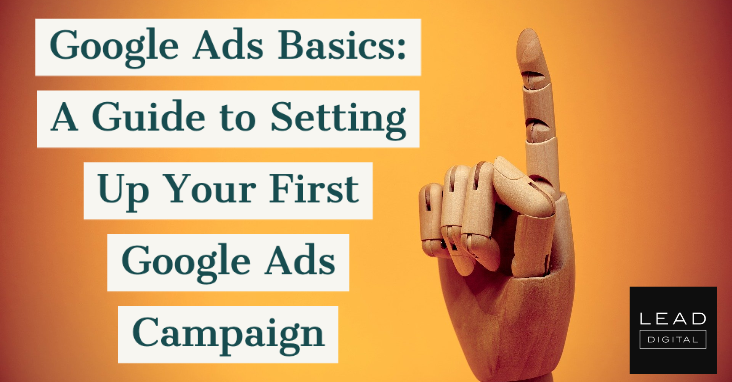 Google Ads are to online marketing what the “pizza move” is to beginner skiers—once you get the hang of the basics, you’ll start seeing results straight away (and likely be keen to learn more, more, more). But that initial learning curve can be a little daunting, especially if you’re still learning about online marketing in general, and all the tactics, tools, and strategies that come with it.
Google Ads are to online marketing what the “pizza move” is to beginner skiers—once you get the hang of the basics, you’ll start seeing results straight away (and likely be keen to learn more, more, more). But that initial learning curve can be a little daunting, especially if you’re still learning about online marketing in general, and all the tactics, tools, and strategies that come with it.
Since Google is basically synonymous with the Internet, Google Ads are worth getting friendly with. Not only will they get your business, product, or offerings in front of a lot more of the right eyeballs, they can help build good credit within the Google ecosystem to bolster your organic ranking efforts.
But you’ve gotta crawl before you can walk, so I put together a step-by-step guide to creating and setting up your first Google Ads. Full disclosure—I’m pretty new to setting up Google Ads myself, in the interest of taking a genuine, no-foolin’ beginner’s approach. I’ve also included all of the awesome resources I used in my research at the bottom of the post, so you can explore advanced strategies at your leisure. Now let’s tackle this bunny hill together.

Why Should I Use Google Ads?
Google Ads put your offers in front of a super-targeted audience that is—in many cases—actively looking for exactly what you’re offering. Beyond the pay-to-play power of advertising your business on the world’s most-used search engine, Google Ads can be your portal to building a high Quality Score that reflects on your business overall.
Quality Score is a measurement of relevance through an assessment of click-through rate, ad relevance, and landing pages experience. It’s a way for Google to calculate which advertisers are creating honest, well-targeted, and useful ads versus ones that are… not.
You know those clickbaity, keyword-dense ads that send you to a mystery website or page with a million different products? Their Quality Scores are probably in the pooper—and that sh*t has consequences, like:
- Which ads are eligible to run
- How eligible ads are ranked in search results
- CPC (cost-per-click) you’ll pay as an advertiser
What Google’s really looking at is the experience you’re providing to people searching for those keywords. Your Quality Score gets better the more relevant your keywords are to your offer, the more targeted your ad messaging is, and the better your landing page matches your ad—so visitors get exactly what they’re expecting when they click through. This also translates to increased ad opportunities, higher ad rankings, lower costs-per-click, and more return on your ad spend. – Read more



